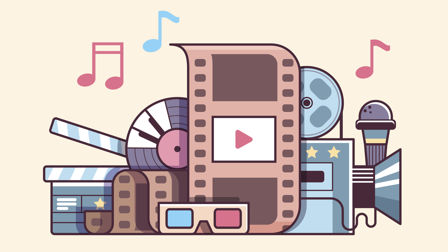Joe Campbell & Paul Hart
Joe Campbell, 73, left, and Paul Hart, 55, right, together form Joe & Co, a leading musical production company base
Joe & Co, a leading musical production company based in London. Both classical musicians, they’ve composed the music for a host of ads, films and television programmes – including Carling Black Label Dambusters, Land Rover Freelander Born Free, Notting Hill and theBBC1 drama Waking the Dead. They talk to Diana Goodman
Let’s start with your vital statistics.
Campbell
I’m married; I’ve had three wives and produced five children. I live in Brighton and some of the time in Marrakech.
Hart
I’m married for the second time; two children from my first marriage; live in London.
Describe your childhood.
Campbell I was born in Northumberland but grew up in a small mining town called Wombwell, which is near Barnsley in Yorkshire. My childhood was a bit mixed up really, because for the first nine years I suffered from chronic asthma, which kept me out of sports. The doctors then discovered I was allergic to various things and I got into much better health – playing sport all year round, coasting through school work and being fascinated by drama. When I reached my teens, I loved going out into the woods with my dog and a gun.
How did you get on with your parents?
Campbell
I got on okay. Dad was a coal miner and had a hard life, as most miners do. I remember him being off sick more than he was at work, due to his getting hurt down the mine and then convalescing to recover from his wounds. He was also a singer and had been in mixed choirs until they moved to Yorkshire, so there was always music being played on the radio or gramophone.
Hart
I had a happy childhood and got on as well with my parents as any youngster might be expected to.
What was the first radio jingle that made an impression on you?
Campbell
I think the first radio jingle I heard was on Radio Luxembourg – The Ovaltinies.
Hart
I was never really affected by commercial radio, therefore not by radio jingles, because being privileged enough to grow up in the UK we had no commercial radio in them days. The only thing that probably ever impressed me on radio was Jeff Wayne’s radio identity jingles for LBC when it first came on stream. I think they probably defined the way that commercial radio identity packages were perceived in England for a while.
What sort of education did you have?
Campbell
My education was a bit mixed really, as most of my pals were a few months older than me and when they went off to grammar school we never met up until the weekends, as they were doing homework when they got home from school. This pissed me off, so when it came to my turn to do my 11-plus exams I purposely put in poor papers so I wouldn’t pass. However, within the first term at a secondary modern I was top in almost all subjects and was made to re-sit the exams with a master looking over my shoulder. Having passed my 11-plus, I decided I wanted to be an engineer and opted for technical college.
Hart
I had a grammar school education and also, on Saturday mornings, was able to go to the Royal College of Music as a junior exhibitioner. I later went there full time at the age of 16.
When did you first start playing a musical instrument?
Campbell
In 1953 I went to Dublin to see the great Stan Kenton Orchestra and this blew my mind; a kind of frustration took place as I thought my life as an engineer was a waste, while all these musicians seemed to be having a ball. But I didn’t start playing until I was 19. I saw The Benny Goodman Story at the cinema and bought a clarinet, and off I went. I couldn’t get enough of playing and probably sent my neighbours barmy.
Hart
I first started playing the piano when I was six. I had a private teacher and although I gave it up when I was seven she had managed to teach me the entire theory of music, which never left me. I then found out that our school had a peripatetic violin teacher, so when I was nine years old I took up the fiddle and shortly afterwards resumed the piano.
Joe, you spent your National Service playing the clarinet in an army band. What would’ve been the alternative, if you hadn’t been a musician?
Campbell
I’d hate to think what would have happened if I hadn’t got in the band. I think they would have trained me to be in charge of a light-armoured detachment that went behind enemy lines to retrieve knocked-out tanks. After demob all I wanted to do was play jazz on double bass. This was good for a while, then the Stones and the Beatles came along and most of the jazz venues turned to rhythm and blues so I joined the ranks in the world of classical music.
Do you think that National Service should have been retained?
Campbell
I think so. I’m sure it would bring back respect and discipline in the younger generation.
You work very closely together. What are the problems involved in such an intense collaboration?
Campbell
There has never been a problem working closely with Paul. We both respect one another’s judgement and if we say this or that doesn’t work, then so be it.
How important is music in your life, aside from your work?
Campbell
Music is such a wonderful thing. Mozart today, Miles tomorrow, Bartók the next . . . No end of permutations to keep you sane. I love it. I also still like to perform in chamber groups, both on clarinet and double bass.
With the 18 years between you, you are of different generations. What impact does that have on your musical tastes?
Campbell
Oddly enough our tastes are pretty similar, with both of us having a jazz and classical background. We also enjoy good grub and a nice bottle of wine now and then.
Hart
Despite the age difference, our musical tastes are quite similar and, curiously enough, our musical experiences as well. So I suppose the age gap has never really been an issue.
Talk us through the composing process.
Campbell
The composing process… Wow. First you need to figure out the brief, then soak in the film that you’re writing for, and then write some music to match the film and the brief. I think you need to ask Himself where that comes from.
Hart
Normally we would each present some ideas to the other and we’d refine them during the recording and production process. We tend to talk in shorthand; we both easily understand what the other means. If Joe said to me “headless chickens”, I’d take it as a reference to Mussorgsky [who composed Ballet Of The Chickens In Their Shells] rather than some joke he may have told me last week. In fact, after a number of years’ working together our thoughts have become so similar that often as we present each other with our ideas, we find that they’re virtually identical.
How important is music in advertising?
Campbell
Well, how many ads do not have music? I think that will indicate the importance that music plays in the industry.
Hart
I think it depends very much on the individual advert. Some adverts, after all, are written intrinsically around a musical idea. Sometimes music is just used as wallpaper, to cover a lightly written – or even badly written – script; just a kind of bland thing that you stick behind it to stop people being embarrassed by a rather tenuous claim by the advertiser. Over the years we’ve often had to rescue a film that may not really work on its own, by trying to add music.








